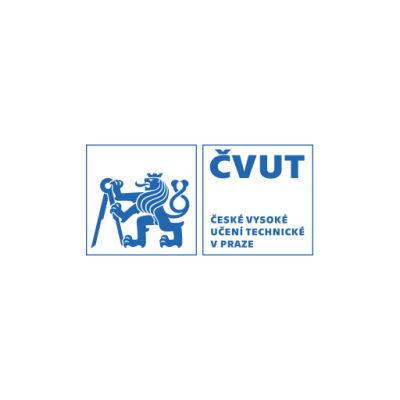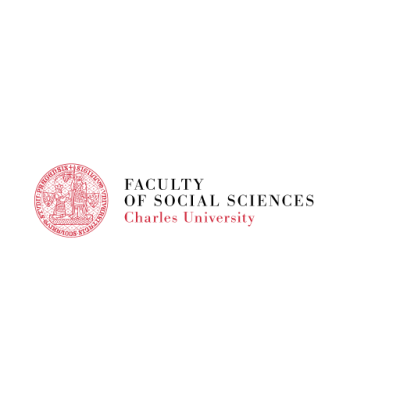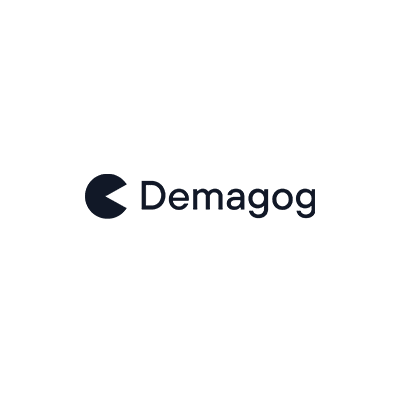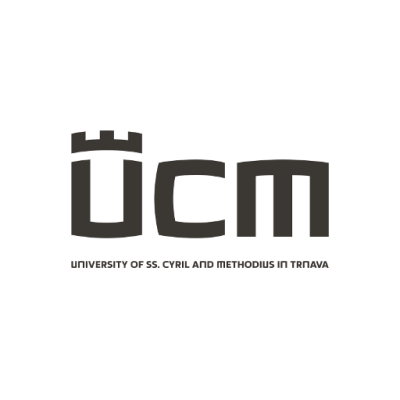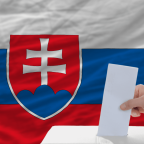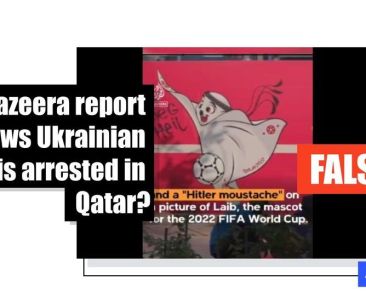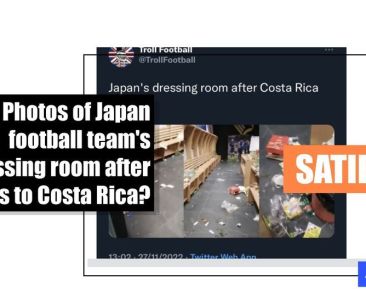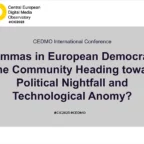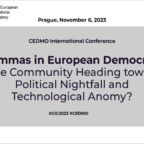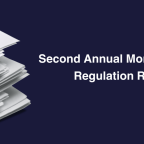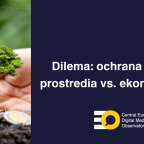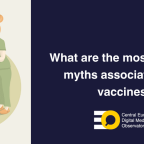About CEDMO
The Central European Digital Media Observatory (CEDMO), as an independent non-partisan multidisciplinary hub, aims to identify, research and prioritise the most critical sources and causes of information disorders in Central Europe (mainly the Czech Republic, Slovakia and Poland). This international consortium was created to propose a set of short and longer-term actions, as well as recommendations to help civil society, public institutions and the private sector respond to the declining trust in key institutions and help society to resist the effect of increasing exposure to mis- and disinformation.
By interacting and coordinating with European Digital Media Observatory (EDMO) and other regional EDMO hubs in EU, CEDMO will contribute to curbing threats posed by information disorders, including disenchantment with the democratic processes, and discord in civil society in Europe, and to building community and nation-wide resilience while protecting information ecosystems.
About CEDMO
The Central European Digital Media Observatory (CEDMO), as an independent non-partisan multidisciplinary hub, aims to identify, research and prioritise the most critical sources and causes of information disorders in Central Europe (mainly the Czech Republic, Slovakia and Poland). This international consortium was created to propose a set of short and longer-term actions, as well as recommendations to help civil society, public institutions and the private sector respond to the declining trust in key institutions and help society to resist the effect of increasing exposure to mis- and disinformation.
Our Partners
About CEDMO
The Central European Digital Media Observatory (CEDMO), as an independent non-partisan multidisciplinary hub, aims to identify, research and prioritise the most critical sources and causes of information disorders in Central Europe (mainly the Czech Republic, Slovakia and Poland). This international consortium was created to propose a set of short and longer-term actions, as well as recommendations to help civil society, public institutions and the private sector respond to the declining trust in key institutions and help society to resist the effect of increasing exposure to mis- and disinformation.
Our Partners
he spread of disinformation on the Internet is perceived as a severe problem by 77% of the Slovak population, which is the highest so far of all previous waves of the longitudinal CEDMO Trends survey, which is conducted for us on a monthly basis by the research agency IPSOS since August 2023. The number of people who perceive disinformation as a threat to the security of Slovakia is also increasing (76%). 39% of the population feels exposed to disinformation. What narratives were most widely spread in Slovakia in February, the month preceding the presidential elections? How many people trust them? And what are the population’s expectations regarding the election of the new head of state? – These questions are answered by the findings of the newly published thematic report on the presidential elections in Slovakia. In addition to the data from the aforementioned survey, it also contains facts recorded by CEDMO’s fact-checkers.
Across Instagram, TikTok and YouTube, women and girls wanting to increase the size of their chests, hips and thighs discuss how they have “tried everything” to gain a few pounds without success until they discovered a “miracle product” which allowed them to go from 110 to 135 pounds in a matter of weeks.
“The French protests in the millions to tell WEF globalist puppet Macron to get the F out,” says an April 30, 2023 tweet, referencing ongoing civil unrest across France against multiple government-backed reforms and proposals.
“Apeel is the latest food tech from Bill Gates! It’s designed as an edible film to keep produce from going bad,” says an April 20, 2023 tweet. “Do you trust it to be safe!? I would avo!d it like the pl@gue!”
“Bitcoin mining has zero carbon emissions,” says an April 10, 2023 tweet from Riot Platforms Inc.
“I guess Biden thinks that $44 billion buys him exclusive groping rights,” says one of several tweets that shared the image, referencing emergency assistance earmarked for Ukraine in a $1.7 trillion spending bill that the US Senate passed December 22.
Video game clip falsely shared as footage of Russian tanks struck by US-supplied missiles in Ukraine
“Ukraine is hunting Russian tanks with American FGM – 148 Javelin missiles. Have to see to believe it,” reads the caption of a video shared on Facebook here on October 27, 2022.
“Joe Biden announced to the world tonight that they are going to cheat by dumping ballots,” says a November 2 post on Telegram from an account supportive of QAnon. “He asked the citizens of America to ‘be patient’ because ‘it takes time to count all legitimate ballots.'”
“Look closely. The effects of CO2 on the planet….,” says a November 27, 2022 tweet from former University of Toronto professor Jordan Peterson that has tens of thousands of interactions.
“Nazi Ukrainians were arrested in Qatar after they drew swastikas on football posters,” reads a tweet from November 22, 2022, featuring a video with graphics and a logo resembling those of international news channel Al Jazeera.
“Japan’s locker room after the Costa Rica match,” reads the Korean-language title of a post shared on Gasengi, a popular South Korean internet forum, on November 27.




